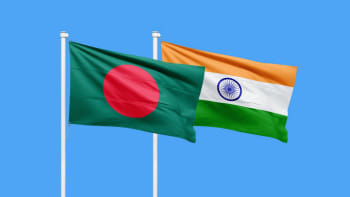Nemtsov killing exposes cracks in Kremlin unity
The killing of Russian opposition figure Boris Nemtsov within sight of the Kremlin has exposed rarely seen tensions between different camps inside President Vladimir Putin's system of rule.
No outsiders can know with any certainty what is happening behind the red-brick walls of the Kremlin, but some of Nemtsov's associates say his shooting is being used by one faction to send Putin a message that they are unhappy and need to be reckoned with.
That would represent a challenge to the foundations of Putin's 15-year-old rule, built on a rigid pyramid of power and the assumption of unshakeable loyalty.
"I think that perhaps Putin, even completely sincerely, was bewildered and even afraid," Vadim Prokhorov, Nemtsov's lawyer, said of the hours after the Feb 27 shooting.
"Because if you can do that next to the Kremlin, then is it not possible to do it along the route of the (presidential) motorcade?" he told Reuters.
Feeding a mood of frenzied speculation in Moscow, Putin this week canceled a planned trip to Kazakhstan without explanation. A Kazakh official said Putin was ill, while the Kremlin said he was fine and working as usual.
Yet analysts point to signs of tensions between, on one side, the powerful head of Russia's Chechnya region, Ramzan Kadyrov, and on the other, the Russian state security agencies which are Putin's closest associates.
Many of Nemtsov's supporters said the president stood to gain by removing a relentless critic. Russian officials denied involvement and Putin called the killing a shameful tragedy.
Sergei Sharov-Delaunay, an aide to Nemtsov in the opposition movement, said he had a number of theories about the motive for the killing, but one is that it was part of an internal power struggle.
"It might have been some group within the authorities trying to put pressure on Putin, to boost their position, to force even more radical scenarios," he told Reuters.
Kadyrov, the Chechen leader, professes loyalty to Putin but also represents a risk for him. Kadyrov put down an anti-Moscow insurgency in Chechnya, helping Putin cement his rule. In exchange, Putin gave him a large degree of autonomy to run his region as he chooses. The arrangement has so far been successful for both men, but some observers say Kadyrov is overstepping the mark.
There are signs too that Putin's nationalist allies, who include some senior people inside the government, are getting fractious.
The best-known Russian commander among the separatist rebels in eastern Ukraine, a former special forces officer called Igor Girkin, has accused Putin's entourage of betrayal.
"The team that the president is now working with is absolutely pro-Western," he said in January on Neuromir TV, a Russian Internet TV channel. "It is the same people that the West is counting on as the fifth column."


 For all latest news, follow The Daily Star's Google News channel.
For all latest news, follow The Daily Star's Google News channel. 



Comments